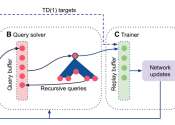AI: The elements of visual art recommendation
The beauty of art lies in its ability to evoke emotions and spark imagination, but understanding the message behind a piece can be challenging. Computer scientists from the University of Luxembourg have studied the potential ...
Apr 21, 2023
1
14









